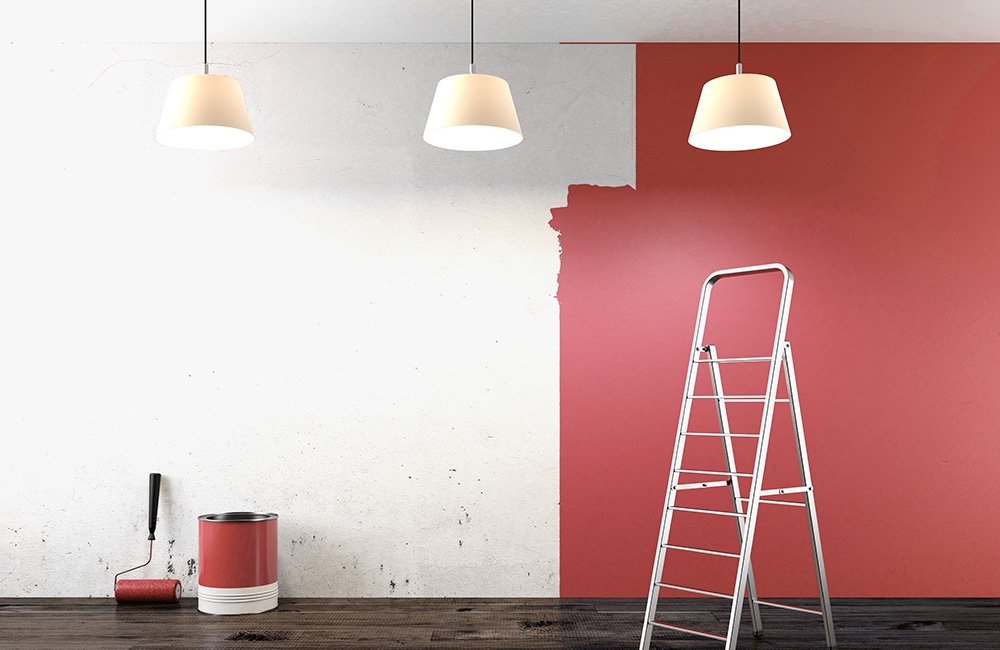Here are some useful advises for those who wish to buy real estate in Montreal in a safe and efficient manner.
For most people, buying a house, a condo or any other property represents the biggest investment of their life. With myriad of factors involved, such as research, visits, offers, negotiations and counter-offers, not to mention commercial, legal and financial details, this process is far from simple, especially when one is going through it for the first time. As such, the professional services provided by a real estate broker contribute to the success of each step of the purchase transaction.
As a buyer, the client will incur no real estate brokerage fees, as these will be borne by the seller. So, why forego such a service? The real estate broker will facilitate the buying process, taking charge of each step, while serving as an advisor and seasoned negotiator. The buyer will be guided through every step of looking for a house, condo or other property, as well as the transaction itself, thereby guaranteeing peace of mind.
Each real estate broker boasts a broad field of expertise, which any property buyer can appreciate. Through their real estate brokerage training, they have access to several tools and an excellent network of contacts to properly advise their clients. As a financial advisor, building inspector and notary, a real estate broker leverages its network to facilitate every transaction, and can also provide many useful details on properties for sale.
Furthermore, their objectivity and expertise will be a boon during visits. Indeed, they will be able to remind buyers of their search criteria at all times, as well as any property details to check on before producing a promise to purchase. As such, despite emotions that may arise during the buying process, clients will be properly guided to an informed decision.
Teaming up with a real estate broker when buying a house, a condo or any other property, also means benefitting from full protection under the Real Estate Brokerage Act, which stewards the profession and protects the general public.
Are you currently renting and thinking about joining the ranks of homeowners? You should know that in addition to providing numerous financial benefits, buying a home will help improve your quality of life. Not only do homeowners enjoy more freedom, they also have a strong feeling of pride, as well as peace of mind. It’s definitely a worthwhile investment!
A WELL-ADAPTED HOME
First and foremost, being a homeowner means living in a house that suits your tastes and fits your lifestyle.
Is your family growing – do you want a backyard and basement playroom for your children? The purchase of a home can help you benefit from these extra spaces and is also a good long-term investment. Condominiums and plexes offer other benefits: less maintenance in the first case and additional income in the latter.
BUILDING CAPITAL
Paying for a home is a bit like making long-term savings. Instead of paying rent to a landlord, your monthly mortgage payments are used to finance your assets and build capital that you will recover once you finish paying.
A PROFITABLE INVESTMENT
Across Canada, the value of real estate investments has increased significantly over the past ten years. In Québec, the median price of a single-family home grew from $110,000 to $209,500 between 2002 and 2010. This translates into an average appreciation of 8% per year.
TAKING ADVANTAGE OF FIXED PAYMENTS
Tired of rent increases? Unlike tenants who must deal with these fluctuations, as a homeowner, you can enjoy fixed payments for many years and, depending on the type of mortgage you choose, protect yourself against possible interest rate increases.
A NEW LIFESTYLE
Unleash your creativity and decorate your house as you wish, without worrying about the restrictions that are imposed on tenants. Any amount invested in decoration or renovation will be for your benefit. Moreover, nobody can make you leave your home, or enter uninvited for inspection or maintenance.
You’re dreaming of a big house on the waterfront, but does it really fit your lifestyle? Consider this carefully because it’s important to distinguish your dream home from the one that actually meets your needs. Before you begin your search, take the time to consider your needs thoroughly.
YOUR NEEDS
Every family has its own needs and priorities. How many rooms and bathrooms will you need? Is a dining room a necessity? And what about the garage? Will it turn into yet another storage space?
YOUR TASTES
Consider your style. If you’re not enthusiastic about do-it-yourself projects, avoid homes that require major renovations. And even if a spacious yard seems attractive, are you willing to spend the time caring for it? If you prefer city life you’ll have access to theatres, services and restaurants, but it’ll be noisier and won’t have as many green spaces. In other words, determine your priorities!
WHAT’S YOUR BUDGET?
Don’t make the mistake of buying a home that is out of your price range. To find the home that’s right for you, adapt your needs to your budget. Once you’ve become an owner, your investment will start to increase in value and will eventually help you access a home that is closer to your ideal. In the beginning, it’s important to put savings aside for small purchases and unexpected expenses. Ensure you have enough money for maintenance costs such as insurance and repairs, as these can amount to 2% or 3% of the price of your home per year.
YOUR ENVIRONMENT
The environment is also an important factor. Is there a daycare or school nearby? Can your children take public transportation or will you need to drive them around? Consider the distance between home and work too.
DETERMINE YOUR INDIVIDUAL NEEDS
The reasons for buying property vary widely from one person to another. It is therefore extremely important to discuss your individual needs with your real estate broker before visiting a property.
Before making an appointment with your real estate broker, draw up a list of the factors important to you and determine your individual needs such as locality, price, type of property, number of bedrooms, surroundings, public utilities, and so on.
Check with your financial institution to find out how much you can afford to carry as a mortgage and have the loan amount preauthorized.
TALK TO A BROKER
Once you have analyzed your individual needs, talk to your neighbourhood broker. If you are moving out of the area in which you currently reside, your local broker will be able to refer you to a professional broker in the area of interest to you.
CHECKLIST FOR VISITING A PROPERTY
Here is a checklist to use each time you visit a property. It will help you compare the various properties you visit and more easily come to a decision as to which property is best suited to your needs.
YOU’VE FOUND YOUR DREAM HOUSE?
Remember to notify current service providers prior to moving and to take action as required when settling into your new location.
NOT GETTING PRE-QUALIFIED FOR A MORTGAGE
Before looking for your next home take the time to get pre-qualified by the bank or mortgage broker you choose. This can save you hours of searching for homes in the wrong price range or worse, purchasing a home and then finding out you don’t qualify for financing. Pre-qualifying gives you peace of mind, helps narrow your search criteria and most importantly, gives your RE/MAX agent a negotiating edge by being able to alleviate the sellers concern over financing. The latter is especially important should a competing offer surface.
NOT SHOPPING FOR MORTGAGE TERMS
Rates are negotiable! Banks will sharpen their pencils to get your business especially if you have a good credit rating and bring other business to them e.g. RRSP’s, general account, savings etc. Posted rates should viewed as a starting point. You need to know what the best rate is and this is usually done by get competitive quotes. Also, ask whether the bank will cover appraisal fees, and about buy-out fees, penalties, payment options, portability etc. The time spent can save you thousands of dollars over the life of the mortgage.
NOT GETTING PROFESSIONAL INSPECTIONS
Nobody wants to purchase a home only to find out later there are defects, latent or otherwise. Ensure you obtain inspections where needed e.g. home inspection, structural engineer, insect, radon etc. If the inspection identifies deficiencies you may be able to negotiate the purchase price to cover required repairs or make your satisfaction of the inspection subject to the homeowner remedying the problem. Your RE/MAX agent can advise you on inspections you should consider.
NOT USING A PROFESSIONAL REAL ESTATE BROKER
Your RE/MAX agent can help you make a purchase with the least amount of problems. He or she can ensure the price you pay is market value. They can offer expert advice on what to look for, conditions to include, negotiation strategy etc. After all, they work for you.
BUYING FIRST BEFORE SELLING
If price is important you should always sell your present home before buying another. It has the advantage in letting you know exactly how much money you will have available for your next purchase. Selling your home first allows you to place fewer conditions on your purchase which makes your offer more attractive to a seller. They often will demand more money to take a “subject to” offer which takes their home off the market. The other advantage is if you find a terrific house, chances are others will also find it attractive and you stand to lose it if you can’t make an unconditional offer.
Did you know that when you buy a property, you must have money set aside to cover start-up costs? Your down payment and mortgage payments are not the only costs involved, so it’s wise to have some additional savings set aside that can be used for your additional expenses.
These expenses should not be taken lightly and some mortgage lenders will even check that you have these funds available before granting you a loan. Mortgage loans are calculated based on the value of your home and, therefore, cannot be used to pay these additional costs.
HERE IS A LIST OF COMMON START-UP COSTS:

The buy-sell strategy, better known as “Flipping” exists in two similar forms. You can “Flip” your own home by renovating and selling it for profit, or you can do this by buy another property…
Whether you are a first-time home buyer or are purchasing property for the third time, my services include advising you on each stage of the purchasing process…

Do you have the resources to make a down payment to purchase an apartment building? If so, income property is a good option. Do you think that the market prices…